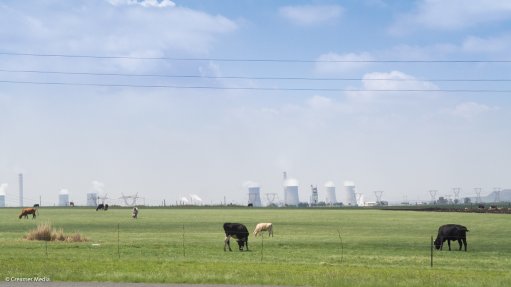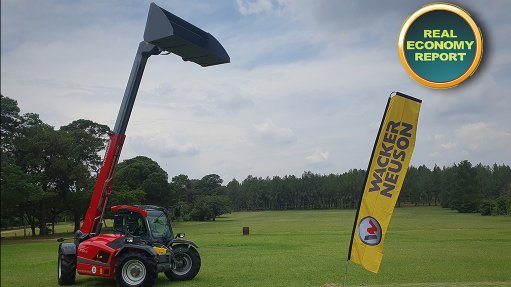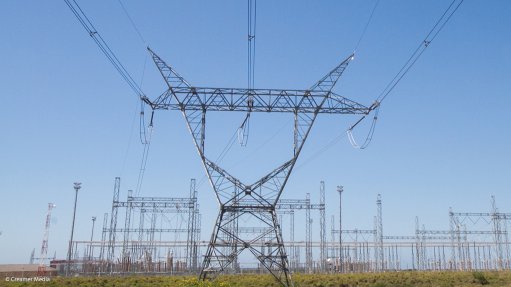Embracing digital tools to improve efficiency
The South African mining industry is increasingly integrating digital tools to improve efficiency and control operational costs, representing a significant shift from previous years where digital technology was seen as merely an add-on to mining operations, says consulting firm PwC smart mining senior manager Ian Mackay.
PwC is the lead sponsor of the upcoming Joburg Indaba to be held on October 4 and 5 at the Inanda Club, in Johannesburg.
PwC Africa energy, utilities and resources leader Andries Rossouw, energy specialist Martin Solomon and chief economist and environmental, social and governance (ESG) lead Lullu Krugel will present at the Indaba.
Mackay explains that South African mining companies are now leveraging digital tools to reduce costs and improve productivity, as well as to report on and deliver their ESG programmes.
Miners are price takers, and as such great emphasis is placed on controlling costs.
Mackay explains that the digital suite of tools available today enables mines to visualise and keep track of multiple initiatives simultaneously and evaluate their return on investment.
Further, as more mines integrate digital tools, more evidence of these tools’ value has emerged. This, in turn, has encouraged the increased uptake of digital tools and expanded the available use cases for others to emulate.
“Miners are in a position where they can demonstrate that a digital programme has value,” he explains.
He emphasises that digital programmes can produce “exceptional” results, including improving the quality and fragmentation of blasting, which would then reduce the amount of energy required for ore processing, which, in turn, helps better control production costs.
Digital tools can ensure that mines are using energy, water and other inputs at efficient and optimal levels throughout the value chain, and assist mines in achieving better production results.
In South Africa, many mines are constrained by their lifespan and operating costs; however, if mineral prices increase, the lifespans of mines are likely to be extended as more resources become economical to extract.
Nonetheless, Mackay says that through reducing costs and optimising mineral recovery and throughput, mines can go further in extending their lifespans.
He highlights that more local mines are integrating advanced process control systems within the processing environment, including technology such as digital dashboards able to show what is happening in real time within a complex chemical process and suggest improved set points for machinery for the following shift.
These analytics lend themselves to continuous improvement – and the ability to adapt to changing input materials throughout the mine, continuously. He explains that improving set points inside the processing plant can result in as much as a 2% improvement in recovery of metals.
“These tools can lead to a greater income with the least amount of input cost,” Mackay says.
Traditional Mining Meets Digitalisation
Mackay explains that another approach to the Fourth Industrial Revolution (4IR) is miners themselves using digital tools to improve their ways of work, as digital tools can provide miners with specific instructions and strategic advice to achieve targets.
He emphasises that digital tools are not meant to replace miners, but rather enable them to work more efficiently.
“The challenge here is to give the miners the information that they need at the point of execution, in digestible chunks,” notes Mackay.
Further, while the complexity of digital tools is a potential concern, he says mining companies are ensuring these tools are simple and easy to navigate in a similar way to mobile applications.
However, Mackay explains that miners are hesitant to adopt technology in some cases. “Miners are typically risk averse and often wait until they see successful implementations in other mining companies before taking the plunge on a new technology.”
The adoption of digital tools requires trust in the leadership teams, and in particular, involving miners in the development of digital tools, which helps to build trust and ownership, leading to better levels of technology adoption.
Attracting the Right Skills
Mackay points out that many mining companies hope that integrating digital tools or 4IR technology will assist in attracting youth and scarce skills to the mining industry.
He explains that mining graduates are increasingly opting to work for well-known global technology majors such as Google, SpaceX , Tesla and Microsoft, rather than joining the mining industry. These companies offer benefits such as remote working and salaries in stronger foreign currencies, which can be difficult for mining companies to compete with.
To allay this perception, several mining groups have started to create innovation teams near universities, such as Stellenbosch in the Western Cape, to attract scarce skills and provide an equivalent experience for skilled professionals.
This means workers will not have to stay in remote areas where most mines are based, says Mackay.
Further, while the integration of technology can be used to attract the youth, mining companies are facing challenges in obtaining specific skill sets required to develop and service digital tools.
As a result, mining companies must rationalise their technology use, especially in the operational technology environment, to ensure that there are enough skilled people to service their needs.
Mackay explains that setting up an innovation team near a university might not be enough to meet the requirements of the mines if they have a wide variety of technologies in use.
Therefore, it may be necessary to standardise technologies across the mining business so that the focus can be on a complementary suite of skills, thereby enabling mining companies to access skills to service them and reducing the need for specialist skills.
Article Enquiry
Email Article
Save Article
Feedback
To advertise email advertising@creamermedia.co.za or click here
Comments
Press Office
Announcements
What's On
Subscribe to improve your user experience...
Option 1 (equivalent of R125 a month):
Receive a weekly copy of Creamer Media's Engineering News & Mining Weekly magazine
(print copy for those in South Africa and e-magazine for those outside of South Africa)
Receive daily email newsletters
Access to full search results
Access archive of magazine back copies
Access to Projects in Progress
Access to ONE Research Report of your choice in PDF format
Option 2 (equivalent of R375 a month):
All benefits from Option 1
PLUS
Access to Creamer Media's Research Channel Africa for ALL Research Reports, in PDF format, on various industrial and mining sectors
including Electricity; Water; Energy Transition; Hydrogen; Roads, Rail and Ports; Coal; Gold; Platinum; Battery Metals; etc.
Already a subscriber?
Forgotten your password?
Receive weekly copy of Creamer Media's Engineering News & Mining Weekly magazine (print copy for those in South Africa and e-magazine for those outside of South Africa)
➕
Recieve daily email newsletters
➕
Access to full search results
➕
Access archive of magazine back copies
➕
Access to Projects in Progress
➕
Access to ONE Research Report of your choice in PDF format
RESEARCH CHANNEL AFRICA
R4500 (equivalent of R375 a month)
SUBSCRIBEAll benefits from Option 1
➕
Access to Creamer Media's Research Channel Africa for ALL Research Reports on various industrial and mining sectors, in PDF format, including on:
Electricity
➕
Water
➕
Energy Transition
➕
Hydrogen
➕
Roads, Rail and Ports
➕
Coal
➕
Gold
➕
Platinum
➕
Battery Metals
➕
etc.
Receive all benefits from Option 1 or Option 2 delivered to numerous people at your company
➕
Multiple User names and Passwords for simultaneous log-ins
➕
Intranet integration access to all in your organisation


















